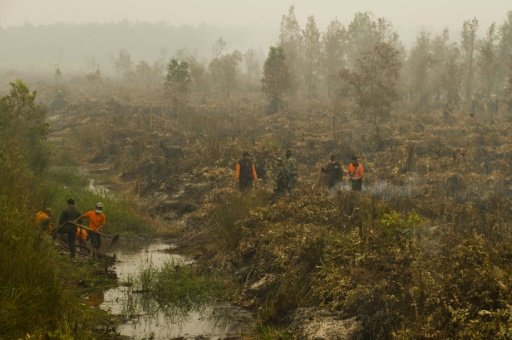Norwegian Prime Minister Jonas Gahr Støre recently hailed Indonesia’s emission reduction efforts as a success, as Oslo financially rewarded Southeast Asia’s biggest economy for keeping its forests standing.
When Støre spoke at the Belém Climate Summit podium on Thursday local time, he mentioned how Norway had partnered with Indonesia as part of its climate action.

The so-called REDD+ climate financing has been at the center of Indonesia’s ties with Norway. This partnership sees Norway making multi-million-dollar payments for Indonesia as a reward for reducing emissions by halting deforestation.
“Since 2008, Norway has partnered with tropical forest countries to reduce deforestation with substantial effects. Brazil, Indonesia, and other tropical forest countries have successfully implemented policies that have delivered significant emission reductions globally,” Støre said at the Brazilian port city.
“However, delivering on our collective ambition to halt deforestation by 2030, we need to do more together,” Støre stated.
The Norwegian politician went on to talk about how his country had pledged $3 billion worth of “conditional investments” to the Brazil-led Tropical Forest Forever Facility (TFFF).
This freshly minted fund is expected to make annual payments to countries that can maintain their forest cover. Jakarta has committed to invest $1 billion in the TFFF, the same amount that its initiator, Brazil, is willing to inject. The TFFF aims to raise $125 billion, about $25 billion of which will come from sovereign sources, while private investors are expected to take care of the remainder. The well-forested Indonesia will likely receive a sum of money, on top of being a donor.
REDD stands for “reducing emissions from deforestation and forest degradation in developing countries”. The “+” refers to the additional forest-related activities that protect the climate, including the enhancement of forest carbon stocks. Under this scheme, Norway has so far paid a total of $216 million to Indonesia for its verified results of slashed emissions from curbing deforestation.
While Indonesia might possibly get extra funding from the TFFF, the Brazil initiative is not seeking to replace other forest financing mechanisms, including the REDD+. The TFFF seeks to complement existing programs by rewarding results in forest conservation.
Later that day, Indonesia’s climate envoy Hashim Djojohadikusumo told the same summit that Indonesia’s annual deforestation rate had been at a historically low level.
“Our average annual deforestation rate has fallen to the lowest level in two decades, representing a 75 percent reduction since 2019,” he said.
As of 2024, Indonesia’s forests span about 95.5 million hectares, equivalent to around 51.1 percent of the country’s land area. Some 91.9 percent lie within the designated forestry area. Net deforestation, which took into account both deforestation losses and restoration gains, reached 175,400 hectares that year, the government reported.
